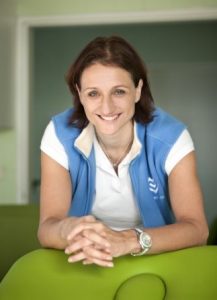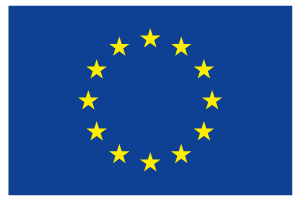
Jana Haberlová is a paediatric neurologist based in Department of Paediatric Neurology in University Hospital Motol in Prague, Czech Republic. Jana has been working for over 18 years as a paediatric neurologist and electrophysiologist. Her main interests are neuromuscular disorders in children. Jana is a partner in the VISION-DMD project, and Principle Investigator (PI) for the Phase 2b vamorolone study at Motol.
Motol University Hospital is the largest medical facility in the Czech Republic, and one of the largest in Europe. It is a major teaching hospital for students. This hospital has 2,410 beds and treats 860,000 patients per year as out-patients and 70,000 per year as in-patients. The hospital is served by almost 5,000 staff.
We asked Jana:
What made you specialise in paediatric neuromuscular disease?
“I first started my specialisation in paediatric neurology as an electro physiologist and meeting the neuromuscular patients I became interested in their care and life”.
How does the Czech Republic compare with other EU countries for Duchenne treatment and care?
“Czech Republic, likeother East European countries, has a different history and way of thinking and we don’t have a tradition of multi-disciplinary care for neuromuscular disorders which I believe is the most important and difficult aspect. A range of specialisations are needed in neuromuscular disease such as paediatric, pulmonary, gastro enterology, orthopaedics, physiotherapy and the social care. The most important thing is to learn how to put all these specialisations together to work as a team. In Czech there is good medical treatment, but it is focused on high level of care. Multi-disciplinary care and social care have not been so important but hopefully this is now improving”.
Is there much collaboration between the Czech Republic and other East European countries on neuromuscular disease?
“Because of the history we are still closer friends than with the rest of Europe and stay in touch through regular meetings, for example, annual meetings with the Slovak Republic on paediatric neurology and the neuromuscular field”.
What is your experience of clinical research and as a clinician why do you participate?
“I have seven years’ experience with clinical trials and similar time involved in clinical research. I specialised in neuromuscular disorders asthese rare diseases have limited therapies, so we need to know more about the causes of the diseases (etiology), how to help the patient and ways to develop the new therapies”.
What advice would you give patients interested in joining a clinical trial?
“What I have learnt from my experience in clinical trials is that it is not always easy for patients to take part in a study. Some families are often enthusiastic to take part and put a lot of hope in a trial, but they have to understand that this hope may not be satisfied. They may be in the placebo group, the trial may require them to go to the hospital frequently, and they may have to change the regime of the whole family. It is important that families are aware of what is involved and make an individual choice to take part with the understanding that the benefits of taking part are not necessarily for the patient in the trial, but more generally for the disease and for future patients”.
You are on the Board of the EURO-NMD European Reference Network that aims to share best practice in Neuro Muscular Disease care across Europe. What do you hope will be the key benefits and opportunities from being part of this network?
“We don’t have a long tradition in the neuromuscular programme in the Czech Republic, and for us it is a big opportunity to learn, share knowledge, and ask questions of more experienced experts in the field”.
VISION-DMD is testing a designer steroid like drug that is expected to have lower side effects than current steroids to potentially provide a safer treatment option. What is your experience of steroid use for Duchenne treatment in Eastern Europe and how do side effects of the current drugs cause concern for clinicians and patients?
“In Duchenne steroids are the core standards of care now, but data from surveys done seven years ago showed that in general in the Czech Republic only 30% of patients were on steroid therapy. The main reason why patients were not on the therapy was that they were scared of the side effect, such as putting on weight and the endocrine complications that steroids use can bring. I hope clinical trials and experimental drugs like vamorolone will change the situation because if we have a better “steroid” therapy without these main side effects, then all DMD patients could benefit from this therapy and hopefully this will change the disease”.
What made you want to join the VISION-DMD project?
“The VISION-DMD project is special because it is sponsored by philanthropes (Patient Foundations), it is a good example of how the world is changing, that clinical trials can be driven by patient organisations and patients are involved in developing new therapies for themselves”.
